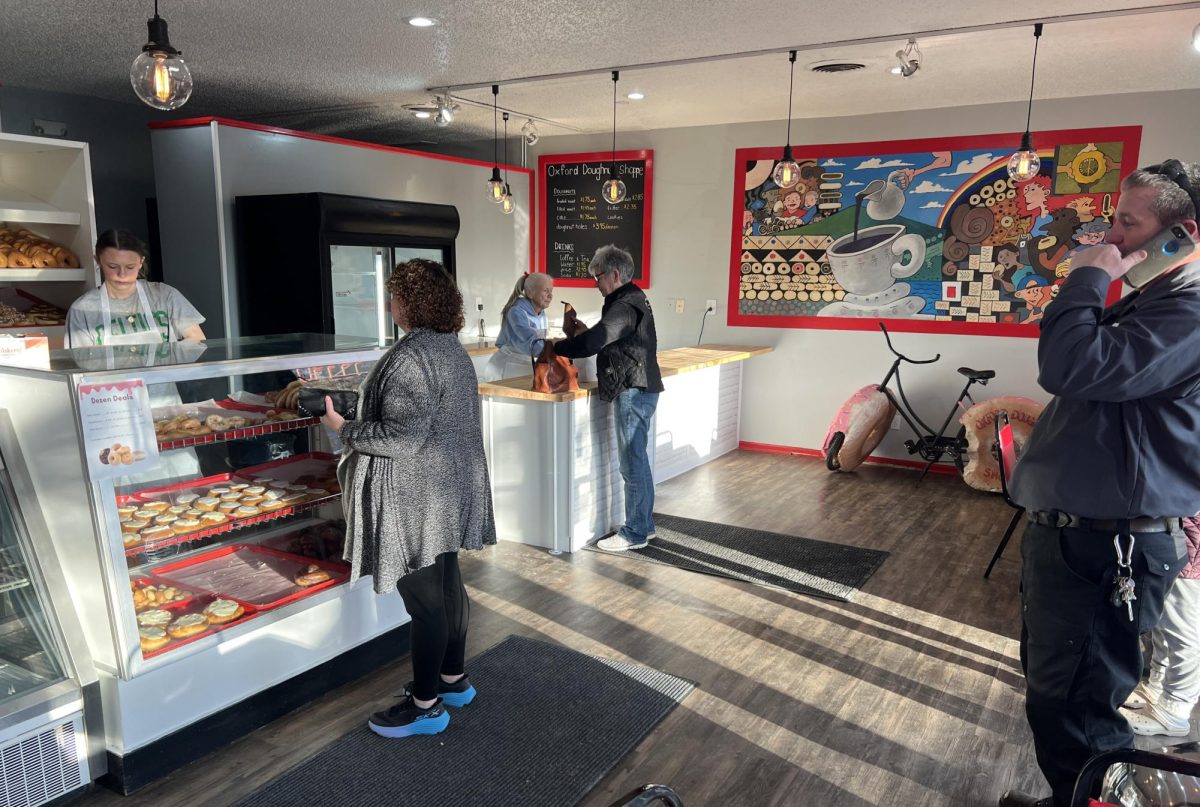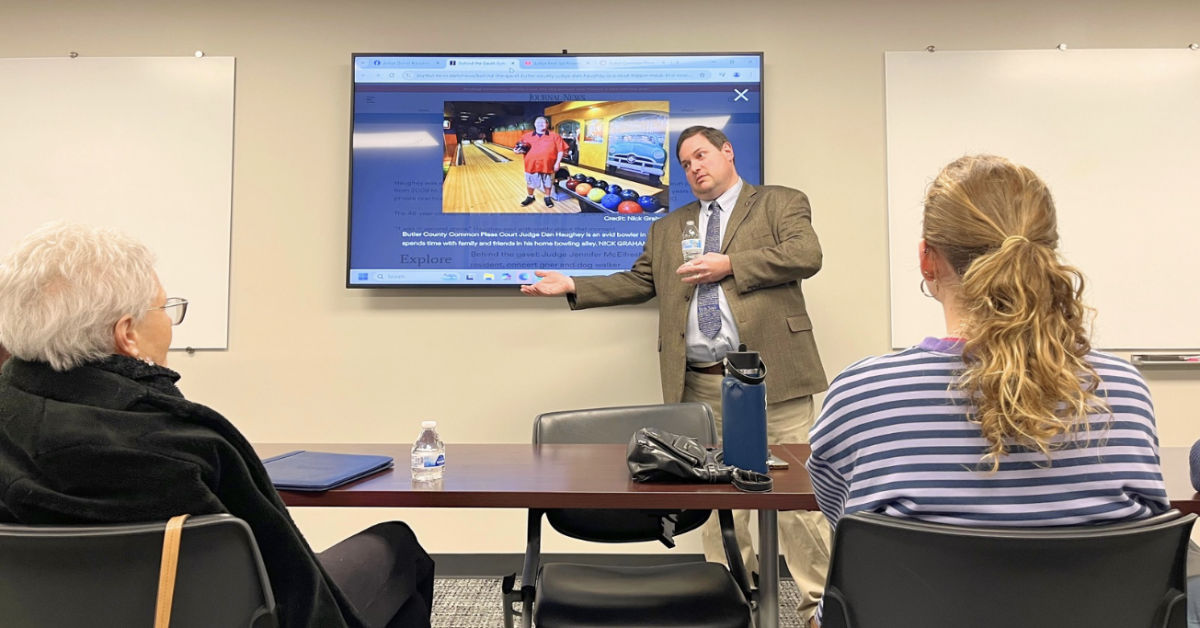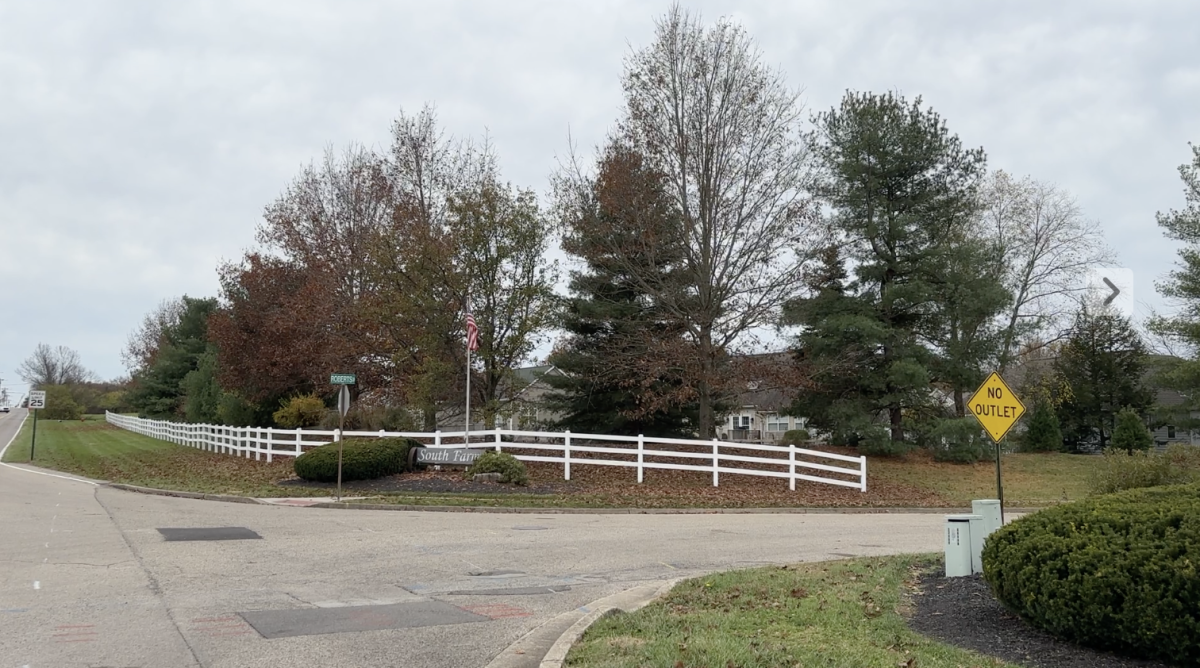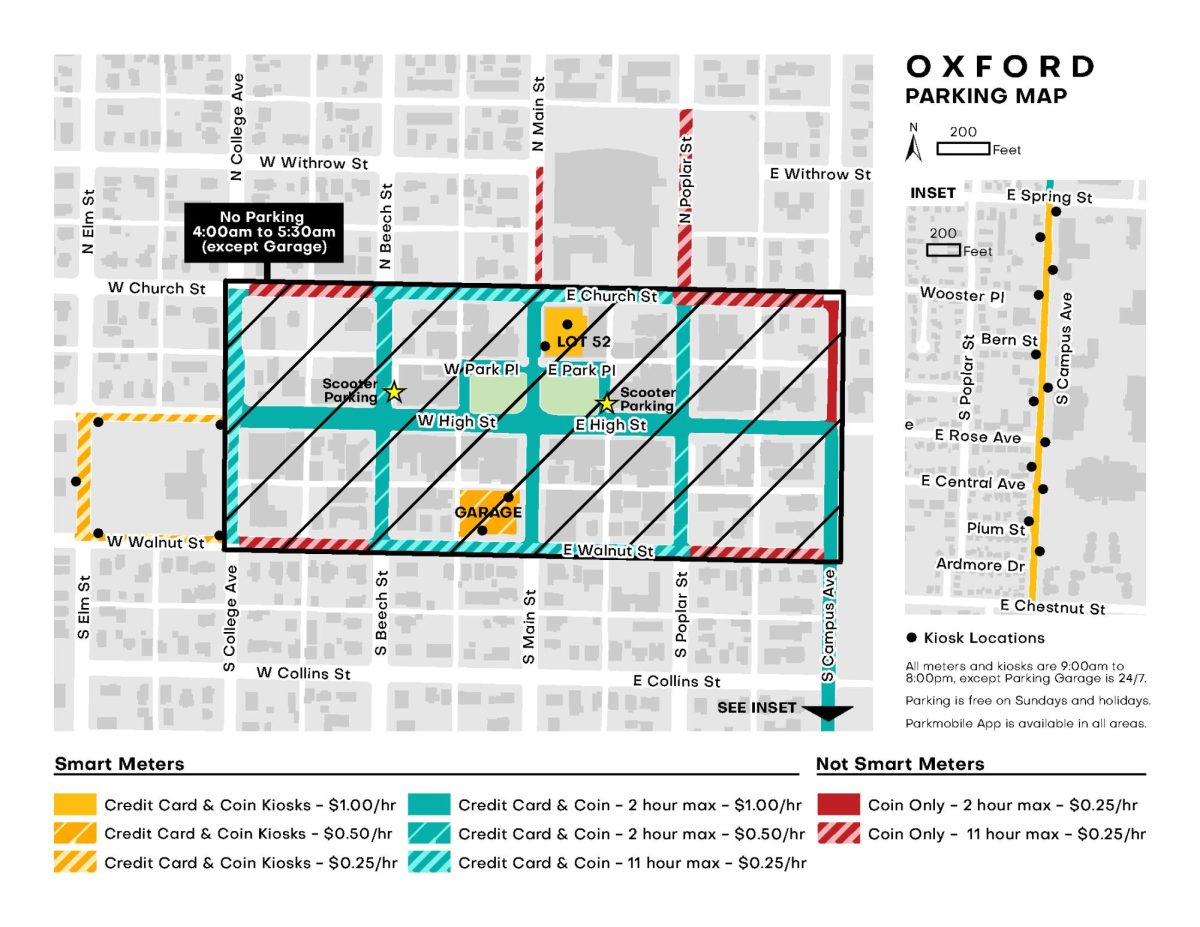Miami University’s ECO (Engaging for Climate in Oxford) Team, has dedicated itself to spreading awareness about the impact of climate change both on campus and within the City of Oxford.
Amy Sullivan, Katie Feilen and Shafkatul Khan, all graduate professors within Project Dragonfly, launched ECO Team to generate awareness around climate change in the Oxford area. ECO provides scientists through Project Dragonfly, a graduate sector in Miami University’s Department of Biology that includes a range of programs to study climate change and the environment around the world.
“We want to bring what we learn internationally in Project Dragonfly and tie it to Oxford, the Midwest is a huge center for food production and the warming of the weather from climate change is having a major impact on the agriculture and soybean production,” said Feilen.
According to a recent study by the University of Chicago and the Associated Press, “48% of Americans find the science on climate change to be more persuasive than it was five years ago, with three-quarters of them crediting recent extreme weather for changing their views.” The study also revealed that 67% of respondents support a carbon tax to utilize funds for environmental restoration, but 49% believe these funds should be given back to the public.
This lack of action served as major inspiration for the three founders who wanted to find a way to bring the topic of climate change to the local area.
“The narrative around climate change is very doom and gloom and it is often looked at from a global lens, not just one place, our goal of ECO Team is to increase the awareness of this issue by making connections with people and to support the general conversation about climate change,” said Feilen.
It Doesn’t Rain As it Used To
With hotter days and heavier downfalls in recent years according to the National Climate Assessment, it is projected to severely impact the local agriculture production.
“In terms of agriculture, corn yield is projected to go down from increased heat stress, episodic precipitation, meaning heavy rainfall and longer dry periods between rain events,” said Khan.
Khan also asks people to think about the polar vortex that occurred this winter. The temperatures were extremely low one week and the next, they were significantly warmer. This lack of consistency impacts the environment and food production.
ECO Team’s founders state that the differences in Oxford’s rainfall currently lacks the volume to have an immense impact, such as destroying a large percentage of crop production. However, if these patterns endure and the weather continues to be inconsistent, the long-term effects will significantly decrease the availability of local food.
Purdue University’s 2018 agriculture report states that sporadic, heavy rain creates lower soil moisture because of the extended periods between rainfall. The low soil moisture paired with the upcoming drastic changes in temperatures are expected to reduce long term sustainability in corn and soybean production.
Corn yields in particular are expected to decline by about 16%-20% by mid-century. Soybean yields are also projected to decrease by 9%-11%. These reductions decrease the food supply and global trade, which triggers changes in the economy.
“Climate change is affecting the availability of food throughout the entire United States, as well as shipping the feed made from it to other nations,” Sullivan said.
“These drastic weather changes increase floods which impacts farming production because the fields flood so the farmers cannot plant or harvest when they need to, or their crop gets flooded,” she said. “This not only lessens the amount of food, but we also use those soybeans and crops to produce meat and other products, which causes ripple effects.”
Higher Humidity Degrades Air and Water
The National Climate Assessment for the Midwest from the U.S. Global Change Research Program states that there are also public health risks attached to climate change. The increased temperatures increase humidity, which degrades air and water quality. The rainfall levels and flooding have and will continue to cause, erosion and declining water quality, as well as negative impacts on transportation, agriculture, and infrastructure in southwest Ohio and around the country. Jessica McCarty-Kern, an assistant geography professor at Miami and an agriculture expert for the UN for Climate Change, notes that the changing environment changes human water supplies too.
“As the air gets warmer, the water will also get warmer. This causes an increase in toxic algae blooms and an increase in invasive species like zebra mussels as they often thrive in warmer water that diminishes which hurts fish populations, thus hurting the economy. Climate change isn’t just about one thing, it’s about everything,” McCarty said.
Climate change is altering our air, water, health, and general environment every day. McCarty states that even locally in Hueston Woods, climate change will increase the algae population in Acton Lake, reducing fish production and the quality of the water.
“In 50 years from now with climate change, we are looking at more than two months of more than 100-degree Fahrenheit temperatures straight in this area,” McCarty said. “Oxford will be a similar climate to North Georgia and North Georgia will only get worse, along with all regions in the country. This will heavily impact what crops can be grown, affecting food production and the economy.”
Feilen noted that five years ago, most people viewed climate change as merely the natural fluctuation of the weather. However, with increasing temperatures and faster shifts from cold temperatures to warm, the public has begun to understand the changing climate better.
Team Reaches Out to Students and Residents
ECO Team involves permanent Oxford residents, as well as a variety of Miami and Tallawanda students. Shara Clark, visiting professor of strategic communications at Miami and the advisor of the Public Relations Student Society of America, also got her students involved.
“We are here to help the community understand what climate change is, what it is doing while using facts and reputable sources to help teach residents how to implement little changes in their lives that feed into a larger impact,” Clark said. “PRSSA students are creating a website that includes more information about the project and its founders, along with general information about climate change and the little changes we all can make.”
To display the effects of climate change visually, the organization plans to host an art show at the Oxford Community Arts Center on May 10, 2019. The art show will also feature community partners talking about their mission, its ties to climate change and giving one eco-friendly idea people can implement into their routines to protect the environment.
“There are many organizations in Oxford already that are helping with this issue,” said Feilen. “The Food Institute helps reduce food waste, Moon Co-op uses organic farming, we want to show how these groups are working with climate change.”
What You Eat Can Impact Climate
When it comes to improving the environment, Khan recommends limiting transportation by carpooling, using mass transit, walking or biking. The significant impact of our dietary choices on the climate is also often overlooked.
“You can get local food at the farmer’s market and we are in a place that we can eat locally and can compost,” Feilen said.
To show the impact the human diet has on the environment, Environmental Science & Technology magazine calculated the carbon footprint from our foods in a study. Based on the carbon dioxide and other emissions that go into producing red meat and dairy compared to a plant-based diet, one day without dairy and red meat equals receiving 100% of one’s diet coming from within 100 miles of their house.
“A significant amount of the corn production around Oxford goes to feeding cows, and the production of beef releases a lot of carbon emissions in the air,” Sullivan adds. “These emissions are extremely harmful to the environment, especially in the mass quantities they are being been released today. Shifting your diet to more local, plant foods and less red meat and cow products serves as a much more eco-friendly and healthier option. This also helps local vegetable farmers and allows current soybean and corn farmers to use their crop for human rather than animal consumption, as well as reduces emissions.”
Green habits developed in students early will make an impact on the environment later. “Students at Miami will go other places and become part of another community, anyway we can support moving toward a greener economy is huge and having knowledge about these greener options can go a long way,” Khan said.
To Feilen, the event has a larger meaning behind it. “This is more of a movement than just an event, we are giving a voice to the broader community and coming together for something that truly has an impact,” Feilen said.
ECO Team also wants to encourage Miami students to not only remain aware of how climate change affects their agriculture and food sources in the community, but the steps they can take on a larger scale to improve it. The founders recommend keeping up-to-date on future environmental policies and issues and to vote on those that are eco-friendly, such as city-wide composting and various recycling programs.





